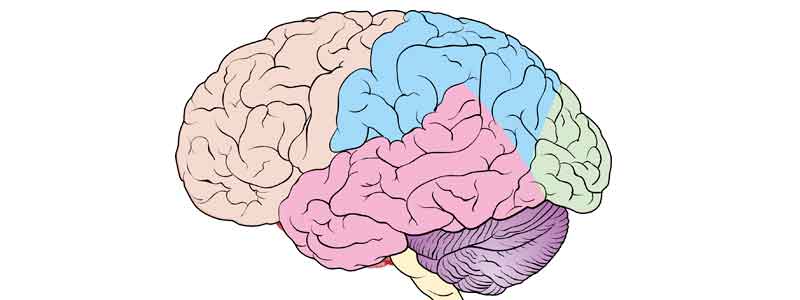Did you know that your brain is plastic? I’m not speaking of the substance that we see every day in products from automobiles to hearing aids. Rather, I’m referring to your “neuroplastic” brain. This term means that the brain reorganizes itself when auditory input is reduced due to untreated hearing loss.
The brains of people with normal hearing constantly undergo changes that fine tune the ability to use sound. A brain that has been deprived of sound due to a hearing loss remaps nerve connections in a way that makes it less able to react to sounds when they are present. These changes slow and reduce the processing ability of the brain, forcing those with hearing loss to dig more deeply into their cognitive capacities to make sense of what they hear. Memory and mental resources are taxed and the brain must work harder to interpret the sounds it receives. When several sounds are present, the problem compounds, creating difficulties with language comprehension and information recall.

A person with untreated hearing loss experiences greater stress and anxiety as the cognitive effort required for communication increases. If the problem persists, it can lead to negative emotional consequences as shown in a 2003 clinical study. The researchers found that hearing loss contributed to a poorer quality of life due to isolation, depression and confusion.
Fortunately, these problems can be reversed. That process begins when the individual is fitted with hearing instruments. By enhancing audibility, the demands on memory, cognition and processing ability are reduced. In addition, nerves in the hearing centers of the brain begin to remap themselves in response to the increased auditory input. These changes are not immediate, but occur gradually over time. With this in mind, it makes sense to keep your hearing functioning at its maximum capacity.
Hearing With Your Brain
The common belief is that hearing occurs in the ear, but this is an oversimplification.
The ear is an important sensory component of the auditory system, yet it alone does not produce hearing. Only when the ear interacts with the auditory nerve and the auditory cortex of the brain, can you interpret the sounds of your environment.
Your brain is responsible for making sense of everything you hear, from detecting the simplest sounds to performing the most complex listening activities. People have an amazing ability to sort through rapidly changing information and automatically make sense of it. How does this occur?
Receiving and Processing Speech
Sounds are coded in the ear. The brain receives, identifies and recognizes meaningful patterns of the sound information your ears provide. Ears with hearing loss have a reduced ability to code the sounds, so the brain has less information to process and utilize. Small differences in sound patterns can produce large differences in understanding (for example, “tin” vs “thin”). These differences give meaning to speech and help avoid confusion.
Hearing aids increase the loudness of sound to overcome the sensitivity loss in hearing-impaired ears, but the effectiveness of the microchips that perform this task varies considerably. Older hearing aids have sound processors that are not efficient at sampling and reproducing sounds. Since the brain receives less information from the ear, it cannot differentiate the speech sounds as effectively. This results in limited understanding.
Acoustic research scientists at Oticon have developed new hearing aid computers that mirror the neural processes used by the brain to analyze sound. In addition, these microchips are able to process 30 percent more information each second when compared to previous generations. This faster speed enables better coding and separation of speech sounds, resulting in more complete replication of speech at the level of the brain. Hence, speech understanding is improved significantly.
Why You Hear Better with Two Hearing Aids
Subtle but important differences in sound cues on each side of the head help people hear sounds and locate them. While traditional hearing instrument technology often disturbs these cues, the new Oticon wireless technology works to maintain them by supporting the natural interaction between the ears and brain. This is called binaural processing.
Hearing instruments with binaural processing offer a clearer picture of where you are in relation to people and objects around you. When you wear two instruments designed to work as a system, both ears can give the brain more accurate information. Locating sound helps keep you in touch with your surroundings, lets you understand speech with less effort, and restores the natural interaction between your ears and your brain.
Benefits of BrainHearing™ Technology
Let’s look at an example using the statement below:
“He took the last flight.”
When the statement is read, its meaning is clear. However, when spoken, a misinterpretation might occur for someone with a hearing loss.
Let’s assume that two people in a moderately noisy restaurant are conversing. If one of them has a hearing impairment and is using instruments with older processors, the statement above might be heard as “_e _oo_ the la__ _ligh_.” This is because the high-frequency consonant sounds are softer than the vowels and are not amplified with as much fidelity. It is clear that the meaning of the statement is lost without the essential speech information of consonants like /h/, /t/, /s/ and /f/. Over time, the listener’s poor understanding of speech will create considerable frustration. He will expend more mental and physical effort as he attempts to follow the flow of conversation, and he may give up entirely if the task becomes too difficult.
On the other hand, if the hearing-impaired listener were using a hearing aid model with Oticon’s BrainHearing technology, the consonant sounds would be coded with a high degree of accuracy. The listener’s understanding of the message would be preserved, and he would not need to exert additional effort trying to fill in the sound gaps in the remainder of the conversation.
After trying Oticon’s new devices, my patients are reporting much better speech understanding in noise, significant improvement in the fidelity of music, and a more comfortable overall sound environment. The benefits of BrainHearing technology will be evident the first time you experience it.
Call Hearing Aid Services of Hollywood at (323) 463-7109 for more information or to schedule your appointment today.

